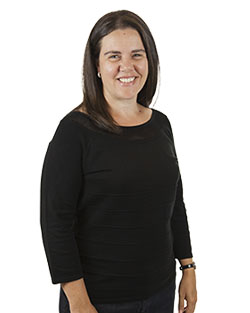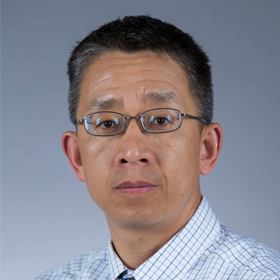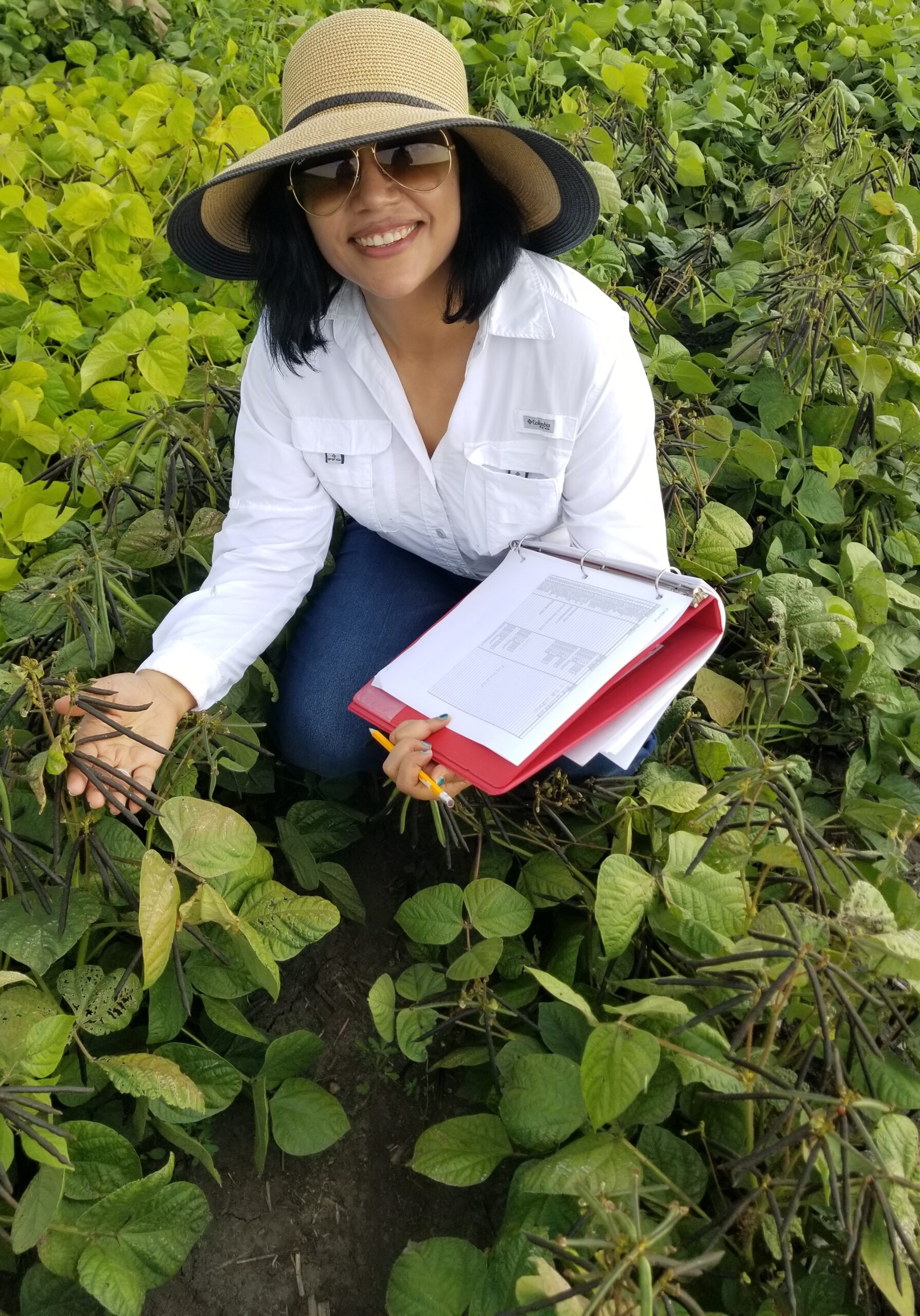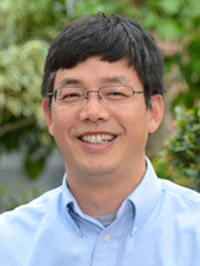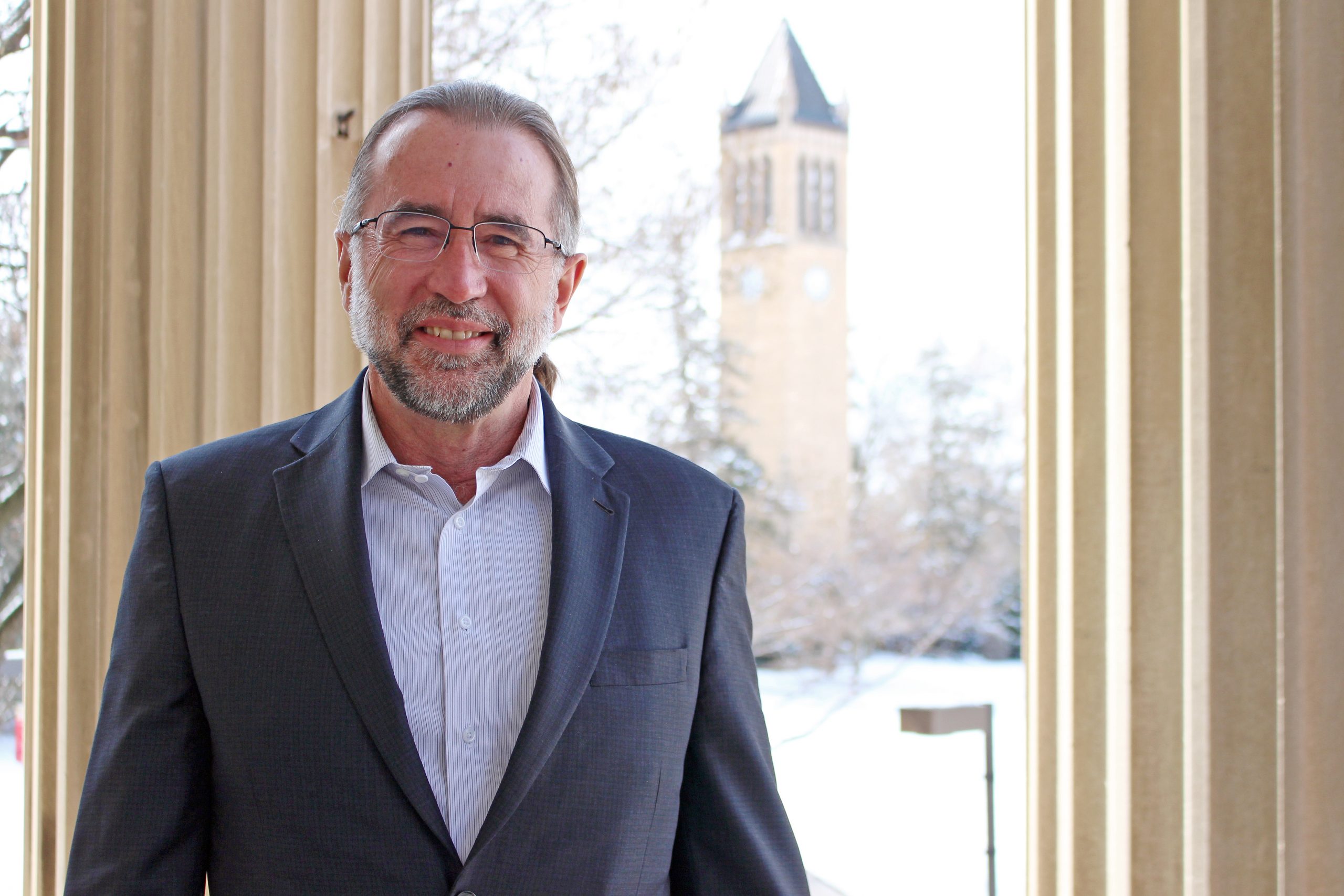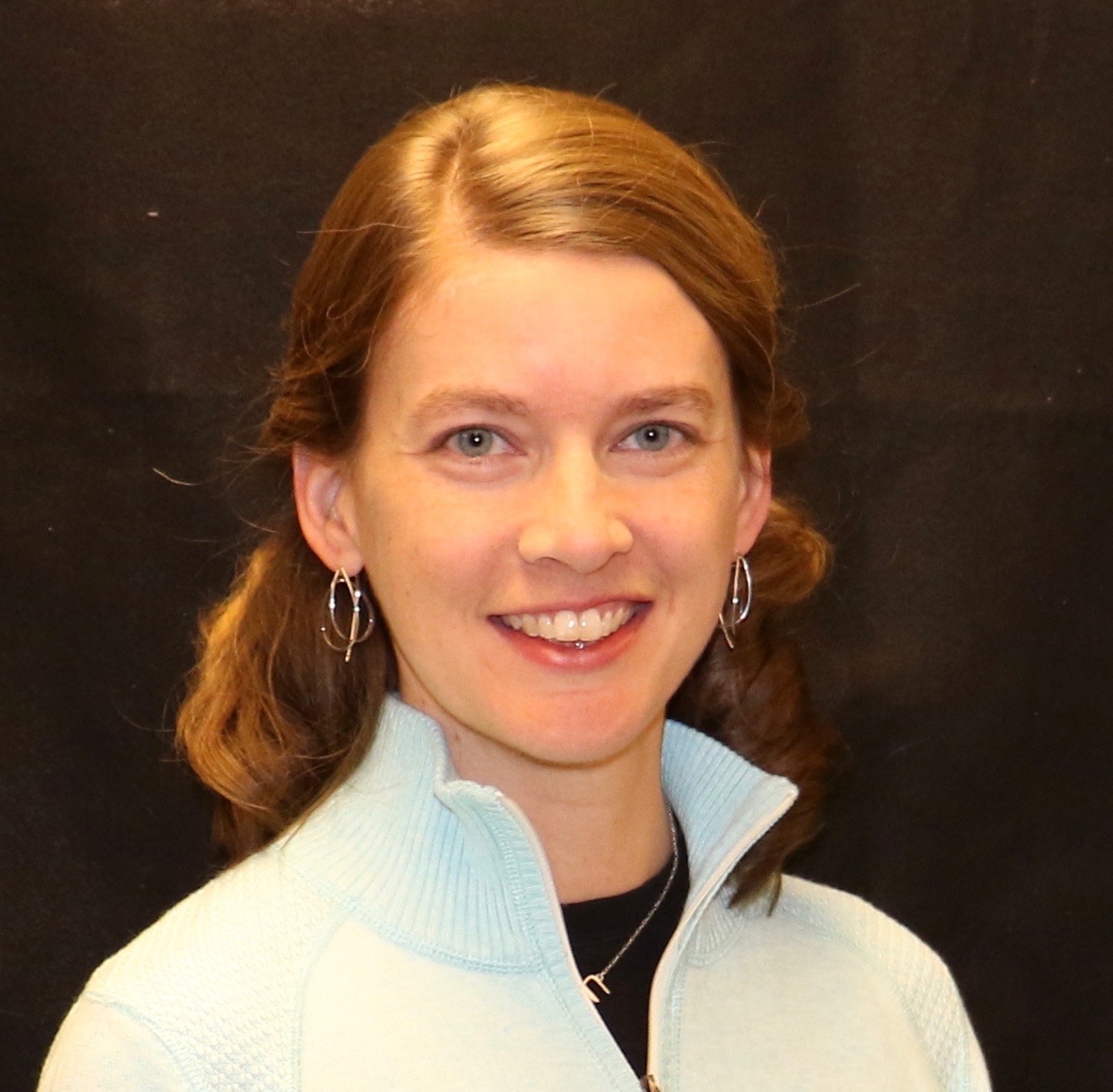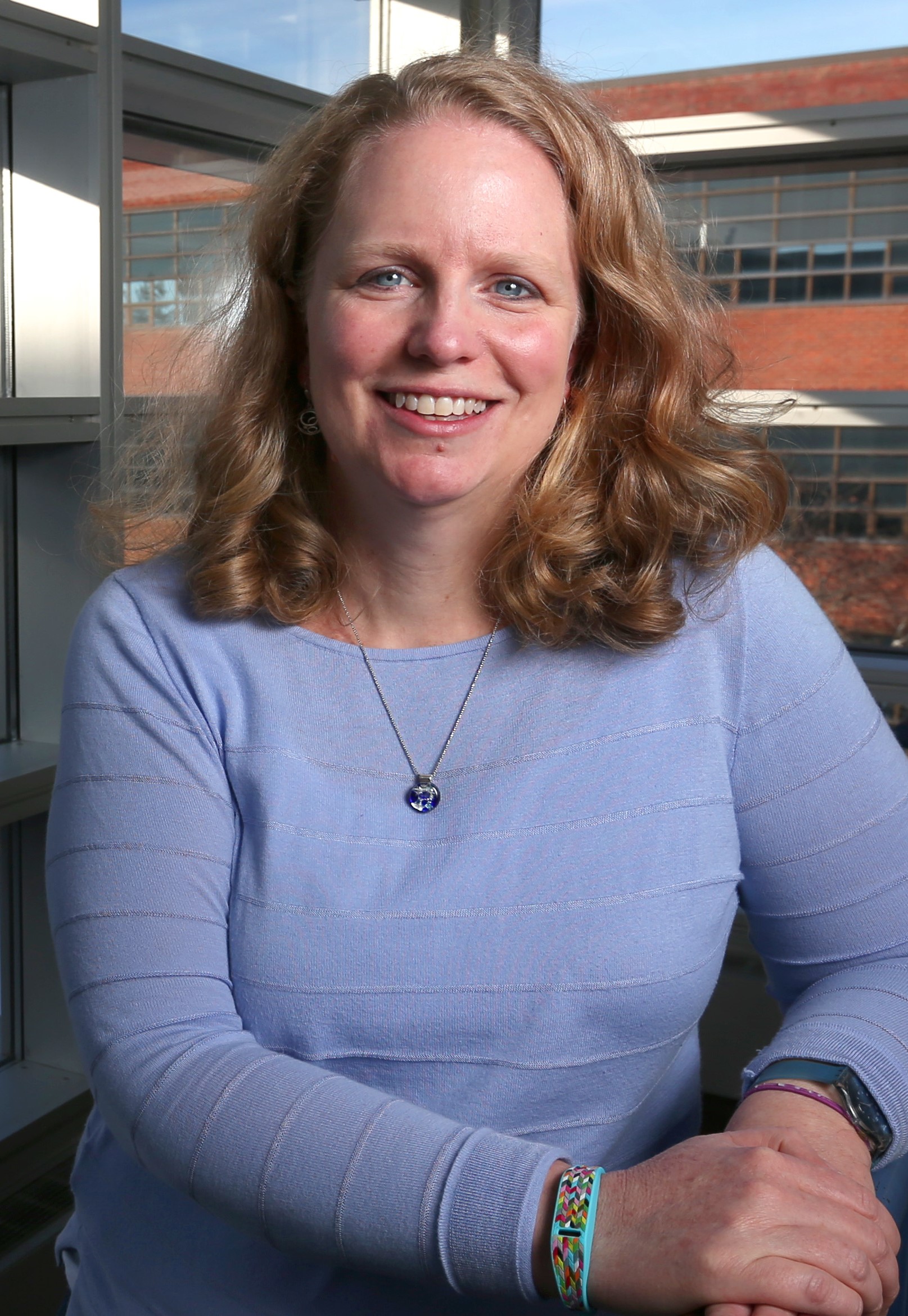Salas-Fernandez, Maria
Maria Salas Fernandez is a Professor in the Department of Agronomy at Iowa State University (ISU). She received a B.S. in Agricultural Production Engineering from the Argentine Catholic University, an M.S. in Plant Physiology from Texas A&M University, and a Ph.D. in Plant Breeding and Genetics from Cornell University. Before her appointment in the academia, she worked in the private sector in Argentina, at the R&D Department of American Cyanamid Company and as a sorghum breeder junior at Nidera SA. She initiated and leads a sorghum field breeding program at ISU to develop germplasm for forage and biofuel production adapted to the Midwest. Her research program is also focused on the use of genomics and high-throughput phenotyping technology to identify genetic mechanisms controlling traits such as plant architecture, photosynthesis, photoprotection and cold tolerance at germination. Dr. Salas Fernandez is a member of the R. F. Baker Center for Plant Breeding at Iowa State University and has been selected as a Plant Sciences Institute Scholar for Predictive Phenomics at ISU.
Awards:
- 2013 American Society of Agronomy (ASA) Early Career Professional Award.
- 2014 National Association of Plant Breeders (NAPB) Early Career Award.
- NSF CAREER grant for her novel research in photosynthesis and photoprotection.
- 2019 Baker Agronomic Excellence Award, Iowa State University.
- 2024 College of Agriculture and Life Sciences Faculty Inclusive Excellence Award, Iowa State University.
Schnable, Patrick
Schnable manages a research program that emphasizes interdisciplinary approaches to understanding maize biology. His own expertise is in the areas of genetics, molecular biology, genomics, bioinformatics and phenomics but he collaborates with researchers in diverse fields, including agricultural, computer, industrial, and mechanical engineering and statistics.
Yu, Jianming
Jianming Yu is Professor, Pioneer Distinguished Chair in Maize Breeding, and Director of Raymond F. Baker Center for Plant Breeding in the Department of Agronomy, Iowa State University. The focus of Yu’s program is to address significant questions in quantitative genetics by combining cutting-edge genomic technologies and plant breeding. Maize and sorghum are two major crops with annual nurseries with thousands of research plots, but the group has worked on many other crops through collaboration and open data (rice, wheat, oat, peanut, and soybean). He earned his B.S. from Northwest A&F University in 1994, M.S. from Kansas State University in 2000, and Ph.D. from University of Minnesota in 2003. He worked at Kansas State University from 2006 to 2012 and then moved to Iowa State University in 2013. His research integrates knowledge in quantitative genetics, genomics, plant breeding, molecular genetics, and statistics, and has the goal of developing and implementing new strategies and methods in complex trait dissection and crop improvement. He has made significant contributions in research discoveries and community leadership and service. Among other honors, Yu was elected to Fellow of Crop Science Society of America and Fellow of American Association for the Advancement of Science.
Much of Yu’s research has been focused on investigating the genetic architecture of quantitative and qualitative traits with evolutionary and agricultural importance, the interplay of genes, environment, and development underlying phenotypic variation, and the strategies to enhance crop improvement by design optimization and prediction. Yu’s significant research contributions include developing the integrated framework for both gene discovery underlying phenotypic plasticity and performance prediction across environments, developing the mixed model framework for genome-wide association studies, outlining the nested association mapping strategy, pioneering genomic selection research in crops, prototyping a comprehensive strategy to turbocharge genebanks to mine the natural heritage, quantifying genic and nongenic contributions to quantitative trait variation in maize, identifying the Shattering1 gene and its homologs underlying the parallel domestication of multiple cereal species (sorghum, maize, rice, and foxtail millet), uncovering a domestication triangle involving sorghum tannin and the pair of Tannin1 and Tannin2 genes, and revealing the patterns in DNA base composition divergence and chromosome size variation across multiple species.
- Linking data on genetics, traits and environment gives crop breeders a wider lens (2024)
- New publication shares insights into AI for crop improvement from Iowa State researchers (2024)
- Weather swings bring steadier results when studying crop adaptability (2024)
- Yu to lead Iowa State’s Baker Center for Plant Breeding (2023)
- Researchers studying leaf angle aim to improve yields, inspire young scientists (2022)
-
News and Views article from Nature Plants: When bitter is better (2019)
-
CSA News: Make crops climate ready (2019), Genomic hotspots control maize leaf angle (2019)
- AAAS honors seven Iowa State researchers for distinguished work (2018)
-
News and Views article from Nature Plants, Plant breeding: Effective use of genetic diversity (2016); Editorial from Nature Plants, Technologies to boost breeding (2018)
Singh, Arti
Dr. Arti Singh is an Associate Professor in the Department of Agronomy at Iowa State University with more than 15 years of plant breeding experience. After obtaining her PhD degree from G.B. Pant University in India, she worked as a Post-doctoral fellow at the University of Saskatchewan and then at Agriculture and Agri-Food Canada prior to joining Iowa State University.
She has authored two textbooks ‘Disease and Insect Resistance in Plants’ and “Plant Breeding and Cultivar Development.” She has published peer reviewed research articles in reputed and high impact journals including the Proceeding of National Academy of Sciences and Trends in Plant Science. She has been awarded competitive grants by USDA-NIFA Agriculture and Food Research Initiative (AFRI) Food and Agriculture Cyberinformatics and Tools (FACT), National Science Foundation, Iowa Soybean Association, IA Soybean Research Center, and United Soybean Board.
She leads a green (Vigna radiata) and black gram (Vigna mungo) breeding program focused on developing new varieties for plant-based protein markets. Her research projects are geared towards harnessing genetic diversity for genetic gain, utilization of advanced data analytics particularly machine and deep learning for early disease and stress signatures, and genetic/genomic studies on abiotic and biotic stress resistance.
Grant, David
Fei, Shuizhang
Lamkey, Kendall
Kendall R. Lamkey began his tenure as the Associate Dean for Facilities and Operations (ADFO) for the College of Agriculture and Life Sciences at Iowa State University on May 16, 2023. The ADFO works in collaboration with the dean, associate deans, department chairs, college-level centers, and other unit leaders to ensure that operations directly advance the mission of the college and that resources are deployed wisely and efficiently. The ADFO will engage with university-level and college administration, facilities planning and management, and external partners to advance the mission of the college. CALS facilities and farms serve teaching, research, and extension missions across the college and state.
Previously, Dr. Lamkey served as interim-chair (2006) and chair (2007-2023) for the Department of Agronomy at Iowa State University. In that role, he provided leadership and direction to the department in the areas of education, research, and extension.
He earned his B.S. and M.S. degrees from the University of Illinois and his Ph.D. degree from Iowa State University in plant breeding and genetics.
Dr. Lamkey’s research focused on corn breeding with an emphasis on the quantitative genetics of selection response, inbreeding depression and heterosis. Dr. Lamkey has served on the advisory board for Makerere University Regional Center of Excellence in Crop Improvement (MaRCCI), Kampala, Uganda since 2018. Dr. Lamkey has been involved in the gates funded project Plant Breeding Education for Africa (PBEA). One of Dr. Lamkey’s current interests is cropping systems models such as APSIM and how to account for genetic changes in cultivars overtime in these models.
Dr. Lamkey has authored or co-authored 81 refereed journal articles and numerous papers in conference proceedings, book chapters, published abstracts, and technical research reports. Dr. Lamkey has been active in graduate education at Iowa State University and has served as major advisor for 18 Ph.D. students and 10 M.S. students and has served on the program of study committee for more than 80 M.S. and Ph.D. students
Dr. Lamkey is a fellow of the American Society of Agronomy and the Crop Science Society of America and has served as an associate editor, technical editor, and editor for Crop Science.

